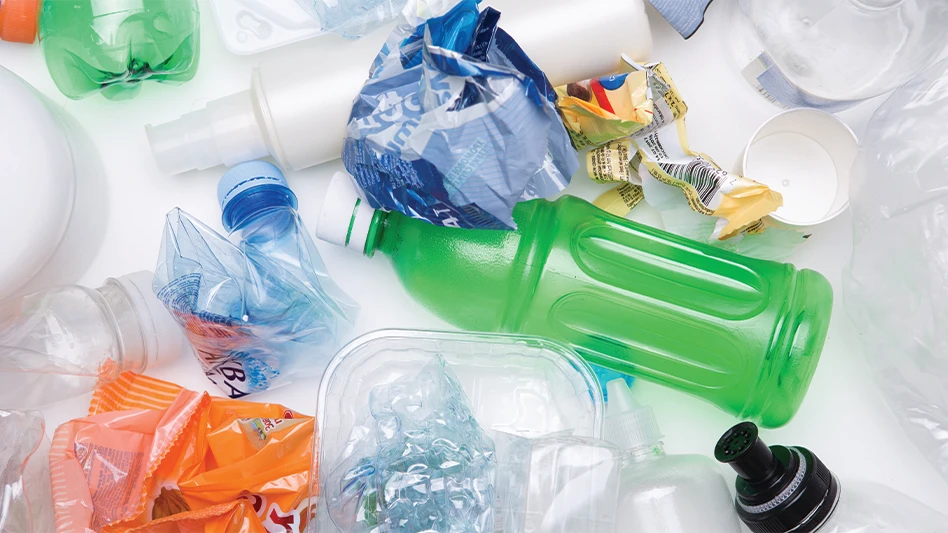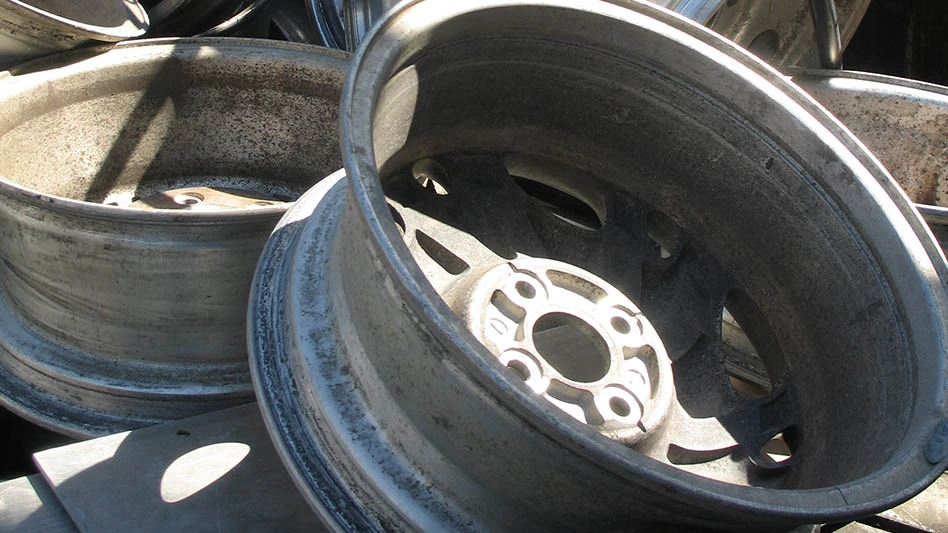
Sergey | stock.adobe.com
Berkeley, California-based nonprofit organization As You Sow recently partnered with environmental solutions platform Ubuntoo to produce their “2024 Plastic Promises Scorecard," which ranks 225 global companies across 15 industries based on their ambition and actions to reduce plastic packaging pollution.
According to As You Sow, one major finding of the report is a significant gap between companies’ stated plastic reduction commitments and actions taken to meet them. It says corporations have a vital role to play in tackling plastic pollution at its source and cites international plastic treaty negotiations and new extended producer responsibility (EPR) laws as demonstrating a shifting regulatory environment that holds manufacturers financially accountable for producing scrap.
The organization cites a recent study published by The Washington Post showing that corporations with branded plastic pollution found in waterways also face a financial and competitive risk, along with the potential for damaging their brand equity with consumers for failing to reduce their plastics use or make meaningful progress on their plastic pollution commitments. “Tangible actions to meet corporate commitments are necessary,” As You Sow says in a news release.
“Companies can use the recommendations and scoring methodology in the Plastic Promises Scorecard to prepare for a future where plastic packaging pollution is no longer an acceptable part of doing business,” says Kelly McBee, lead author of the report and circular economy manager at As You Sow. “This report is designed to be actionable and transparent, giving companies the tools and solutions they need to create a circular economy for plastic.”
The 225 companies were evaluated on their actions and ambition across the following six criteria to prevent plastic pollution. Key findings in each category include:
- Recyclability. Most companies have recyclability goals but are likely to miss their targets, according to the report. Only 22 of 147 companies with recyclability goals are on track to mee their targets because most packaging fails to align with what American communities have the capability and capacity to recycle in practice and at scale.
- Reduction. The report claims companies are using more plastic despite reduction goals. One hundred companies pledged to use less virgin plastic, yet almost all are committed to replacing virgin plastic with recycled plastic rather than reducing their plastic use overall.
- Recycled content. Most companies researched have recycled content goals, but don’t invest in infrastructure to facilitate recycling. Of the 225 companies, the report shows 145 have a goal to utilize recycled content but notes there is not enough recycled content supply to meet demand due to a lack of corporate investments in packaging collection and recycling.
- Recovery. Few companies have goals to ensure packaging never becomes waste, according to the report, noting that nine companies have set quantitative, timebound goals to collect packaging for recycling or keep scrap out of the environment.
- Reusable. Corporate commitments focus on reuse pilot programs, not adoption, the report claims. It lists 43 companies as piloting reusables, but few have integrated reusables as a permanent part of product delivery.
- EPR. The report shows that nearly 20 percent of companies researched have earned the top score of “5” for publicly supporting EPR and voluntarily contributing financial resources for end-of-life packaging collection and recycling.
“Plastic Promises Scorecard uses a first-of-its-kind scoring system to evaluate not just what companies say they will do to act on the plastics crisis, but what they have actually accomplished,” says Venky Kini, data lead and report partner. “We are pleased to present this tool for companies to evaluate their progress against their peers and identify opportunities for new action and ambition.”
As You Sow says shareholders also have been supportive of companies adopting more sustainable packaging practices. Per the report:
- 54 percent of independent shareholders at The Hershey Co. supported the company considering how to support a circular economy for packaging;
- 40 percent of independent shareholders at Restaurant Brands International supported an As You Sow proposal calling on the company to reduce its contribution to ocean plastics pollution; and
- 33 percent of independent shareholders at Amazon supported a proposal asking the company to consider how it can make all packaging curbside recyclable, reusable or compostable.
The full Plastic Promises Scorecard can be viewed here.
Latest from Recycling Today
- RMDAS April figures show recycled steel price setback
- Steer World offers PEX plastic recycling machine
- New recycling grant program launches in Massachusetts
- Tire Recycling Foundation names executive director
- Dock 7 named 2025 Exporter of the Year at New Jersey International Trade Awards
- Waste Connections reports ‘better than expected’ Q1 results
- Commentary: How EPR is transforming the packaging industry
- Acerinox names new North American Stainless CEO





